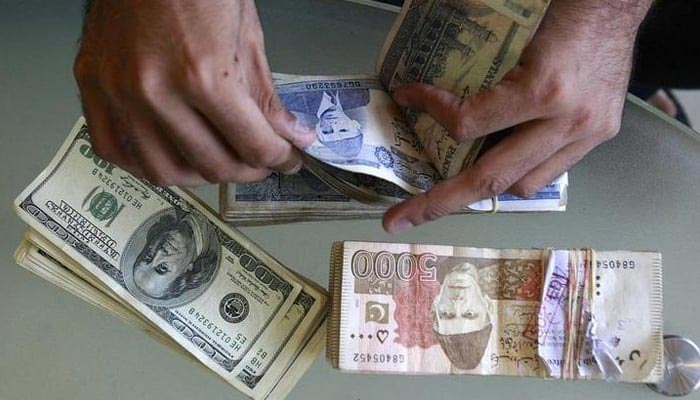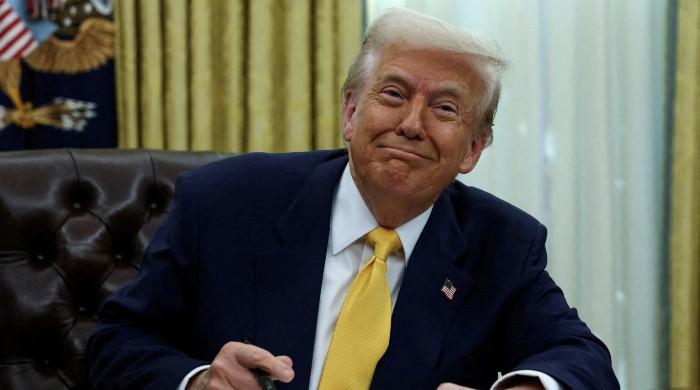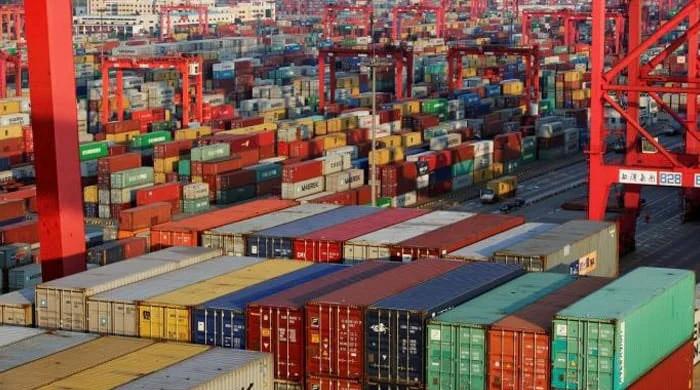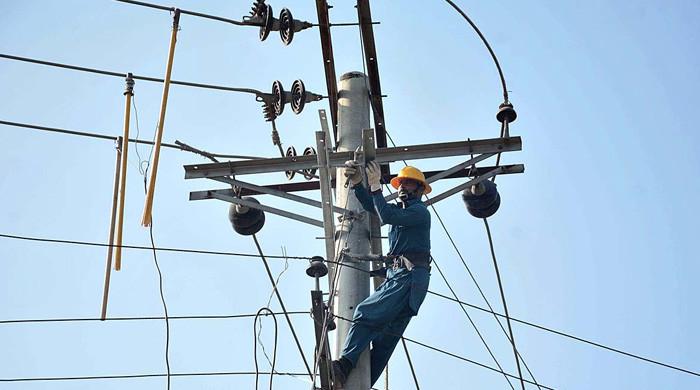Exchange firms can sell 20% of remittances in open market: SBP
Firms expected that possibility of receiving half of remittances would lessen dollar's demand and lower its rate in currency market
November 04, 2022

- Firms expected receiving half of remittances would lessen dollar's demand.
- Suggest govt reduce credit card limits, travel quota from $10,000 to $5,000 to curb dollars.
- Request Ishaq Dar to re-examine trade policy with Afghanistan.
KARACHI: Exchange companies (ECs) have been allowed to trade 20% of remittances in the open market to ease pressure on the rupee, said the State Bank of Pakistan on Thursday.
The exchange firms had requested Finance Minister Ishaq Dar last week to allow at least half of the remittances to be used by the open market with an expectation that this move would decrease the dollar's demand and lower its rate in the currency market, The News reported.
“On our request, the governor State Bank of Pakistan has enabled the exchange companies to sell 20% of workers' remittances to the general public,” said Malik Bostan, chairman of the Exchange Companies Association of Pakistan (ECAP) in a statement.
Earlier, these firms were surrendering 100% of workers’ remittances in the interbank market. The exchange firms bring home remittances with the help of money transfer operators in their accounts maintained with banks in the country.
The rupee has been under pressure due to the strong demand for the dollar in the market. On Thursday, the rupee was trading at 227.75 against the dollar in the open market.
Bostan, along with other members of ECAP, held a meeting with SBP Governor Jameel Ahmad and thanked him for helping exchange companies whenever they face any problem.
The chairman said the exchange firms are buying and selling dollars as per the rate set by ECAP.
“Due to the low rate of exchange companies, customers are selling in the black market instead of selling to exchange companies as their rate is 10 to 15 rupees more per dollar than exchange companies,” he said.
“Due to this illegal buying and selling, after September 2022, the business of foreign currency buying and selling of exchange companies has decreased by about 80%. Currently, 1% of customers are selling dollars at the counter of exchange companies, while buyers are 200% more than before,” he said.
“The exchange companies are facing a shortage of greenback. Now we are only selling dollars to customers who want to travel to the US or send health and education fees. Dollars are currently not being sold to customers holding US currency.”
The exchange firms suggested the government reduce credit card limits and the travel quota from $10,000 to $5,000 to curb dollars.
Credit cards had been issued at a faster pace this year, putting the rupee under pressure. A person with a credit card can use it for international transactions, which is like transferring dollars from Pakistan to abroad.
The exchange firms requested the finance minister Dar to re-examine the trade policy with Afghanistan.
Bostan said every month, about $2 billion goes to Afghanistan from Pakistan in the shape of official and unofficial trade, misuse of Afghan transit trade, smuggling and through the borders, all of which are burdening Pakistan's foreign exchange reserves.
“The government should immediately open barter trade local currency letter of credit and trade through banking channel. Cash dollar trade should be banned.”
Another major reason is that the government has signed a $2 billion coal contract with the Afghan government, which is 22,000 tonnes per day with a value of $6 million.
Pakistan has been importing coal from Afghanistan for quite a long time. The payments against the imports were decided to be made in rupees to Afghani traders.











